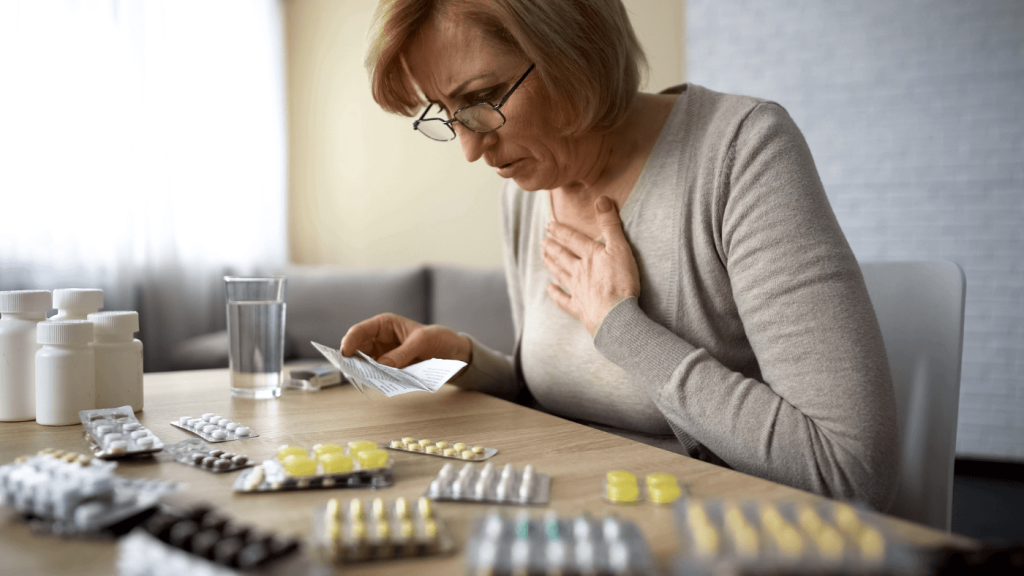Medication management is a crucial aspect of maintaining good health. It involves proper use, storage, and disposal of medications to ensure their safety and effectiveness. One critical aspect of medication management is to avoid self-medicating, which can be incredibly dangerous and lead to serious health problems.
Self-medicating refers to treating oneself with medication without consulting a healthcare professional. It is a practice that can lead to misdiagnosis, masking symptoms, adverse reactions, dependency, overdose, and a delay of needed treatment. Misdiagnosis can be a significant issue with self-medicating, and taking the wrong medication can have severe consequences. Certain conditions require specific treatments, and self-medicating may not provide adequate relief. As such, a proper diagnosis is crucial for effective treatment.
Similarly, self-medicating can also mask symptoms rather than treat the underlying problem. Certain medications can provide temporary relief without addressing the root cause of the problem. This can cause a delay in proper diagnosis and treatment, leading to more severe health problems in the long run.
5 Dangers of Self-Medication
1. Adverse reactions
Over-the-counter medications can interact with prescription drugs causing adverse reactions. Certain medications can also cause allergic reactions or have adverse side effects that can be severe. As such, it is crucial to consult with a healthcare professional before taking any medication, especially if you are taking other prescription drugs.
2. Dependency
Certain medications can be habit-forming, leading to dependency and addiction. This can have significant consequences including physical and mental health problems, as well as difficulties in personal and professional relationships.
3. Overdose
Taking too much of a medication can lead to a life-threatening overdose. This can happen unintentionally, as many over-the-counter medications have similar active ingredients that can build up in your system and cause toxicity.
4. A delay in receiving proper medical care
Delaying medical treatment can result in more severe health problems and, in some cases, death. Seeking medical attention early on can help prevent these negative outcomes.
So, how can you avoid the dangers of self-medicating? Here are some tips to keep in mind:
Consult with a Healthcare Professional: Medication management involves consulting a healthcare professional before taking any medication. They can provide a proper diagnosis and recommend the appropriate treatment. This is especially important if you have an existing medical condition or are taking other prescription drugs.
Follow Dosage Instructions: Always follow the dosage instructions on the medication label. Medication management includes taking the correct dosage, at the correct time, and for the correct duration. Taking too much of a medication can be dangerous and lead to an overdose. Taking too little may not provide adequate relief, which can lead to prolonged suffering or the need for stronger medication.
Read the Label: Medication management involves reading the label carefully before taking any medication. Make sure it is the right medication for your condition and that you are not allergic to any of the ingredients. Additionally, be aware of any potential side effects or warnings listed on the label.
Don’t Mix Medications: Medication management includes avoiding mixing medications without consulting a healthcare professional. Certain medications can interact with each other and cause adverse reactions. This includes over-the-counter medications and herbal remedies.
Be Honest with Your Doctor: Medication management involves being honest with your doctor about any medications you are taking, including over-the-counter and herbal remedies. This will help prevent any adverse reactions or interactions. Additionally, be sure to tell the doctor about any existing medical conditions or allergies.
Don’t Share Medications: Medication management includes not sharing medications with others. Certain medications can be harmful or even deadly if taken by someone who does not need them. Additionally, sharing medications can lead to misuse or abuse, especially if the medication is habit-forming.
Dispose of Medications Properly: Proper medication management involves disposing of any expired or unused medication properly. Do not flush them down the toilet or throw them in the trash. This can have negative consequences for the environment and public health. Instead, check with your local pharmacy or healthcare provider for information on how to dispose of medications properly. This may involve dropping them off at a designated collection site or returning them to the pharmacy.
Educate Yourself: Medication management involves educating yourself on the risks and benefits of different medications. This includes learning about potential side effects, drug interactions, and proper dosages. You can also speak with your healthcare provider or pharmacist for more information.
Consider Non-Pharmacological Options: Medication management involves considering non-pharmacological options for managing your symptoms, such as lifestyle changes or alternative therapies. This can include things like exercise, healthy eating, stress management, and acupuncture.
Be Mindful of Internet Resources: Medication management involves being mindful of the information you find online regarding medications and health conditions. Not all sources are reliable or accurate, and some may promote unsafe practices. Always consult with a healthcare professional before making any changes to your treatment plan based on information you find online.
There are certain members of the population who may be more susceptible to the dangers of self-medicating. These include:
1. Children: Medication management is crucial for children as they may be more sensitive to medications and more prone to adverse reactions. Additionally, they may not be able to communicate their symptoms effectively, which makes it more difficult to diagnose and treat their condition. Parents should always consult with a healthcare professional before giving any medication to their children.
2. Pregnant and Lactating Women: Medication management is critical for pregnant women, as certain drugs can harm the developing fetus. Additionally, some medications may affect milk production or be passed on to the baby through breast milk. Pregnant and lactating women should always consult with a healthcare professional before taking any medication.
3. Older Adults: Medication management is essential for older adults, as they may be more susceptible to adverse reactions and drug interactions due to age-related changes in their metabolism and organ function. They may also be taking multiple medications for various conditions, which can increase the risk of adverse reactions.
4. Those with Chronic Conditions: Medication management is crucial for those with chronic conditions as they may be more likely to self-medicate due to ongoing symptoms and the need for long-term medication use. However, this can increase the risk of adverse reactions and interactions.
If you are part of any of these populations, it is especially important to consult with a healthcare professional before taking any medication or making any changes to your treatment plan.
Medication management is crucial for maintaining good health, and self-medicating can be incredibly dangerous and lead to serious health problems. Misdiagnosis, masking symptoms, adverse reactions, dependency, overdose, and a delay in needed treatment are all potential risks. To avoid these dangers, it is important to consult with a healthcare professional, follow dosage instructions, read medication labels, avoid mixing medications, be honest with your doctor, dispose of medications properly, educate yourself, consider non-pharmacological options, and be mindful of internet resources. Additionally, children, pregnant and lactating women, older adults, and those with chronic conditions are members of the population that may be more susceptible to the dangers of self-medicating. By taking these precautions and practicing proper medication management, you can protect your health and ensure safe and effective treatment.




